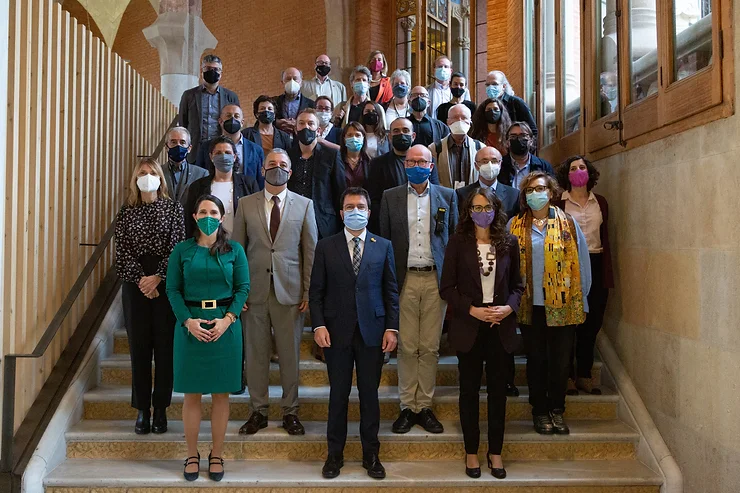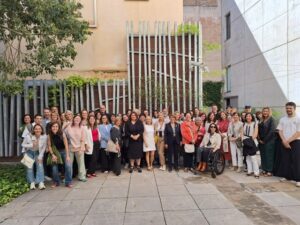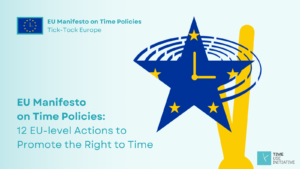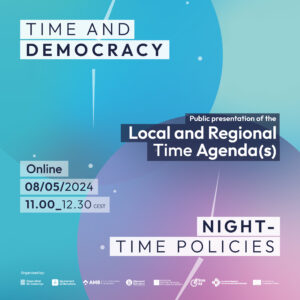The pandemic has changed everything and also the perception of time and the importance of its organization for a more sustainable life. Time policies have become a key tool that contributes and will contribute to face the great challenges of the planet, the recovery from the consequences of the COVID-19 pandemic, to face future work scenarios, and to the achievement and consolidation of the Sustainable Development Goals and the European pillar of social rights.
Currently, the right to time is unequally distributed among the citizenry and time poverty in its different forms exists in all countries and regions, as recognized by the United Nations Economic Commission for Europe (UNECE) 2017. This unequal access in the use of time and the social organization of time directly affect people’s health, equality among them, and personal and organizational productivity; especially affecting people in more precarious economic situations and women.
To improve this situation, 75 of the world’s leading institutions in time policies, including 15 Catalan ones, have signed a declaration that commits them to work together to make the right to time a right of citizenship, to improve health, sustainability and equality among all people.
It is a pioneering declaration on public policy that addresses all the dimensions on which time policies have an impact, including better coordination between institutions to achieve greater concreteness and implementation of the right to time, create an urban and regional agenda on time policies, foster the connection between research centers and public policies, promote the debate on summer and winter time change, etc.
This Declaration, which has been formally signed in Barcelona this Friday October 29th and bears the name of this city, was elaborated by the Expert Lab Coordination Group of the Barcelona Time Use Initiative and the collaboration of members of the Network of European Cities for the Uses of Time, the German Society for Time and the four promoting Catalan institutions: the Generalitat of Catalonia, the Barcelona City Council, the Metropolitan Area of Barcelona and the Barcelona Provincial Council.
The group of initial signatory institutions brings together the most active organizations currently promoting the right to time from around the world, including research centers, such as the International Association for Research on the Use of Time (IATUR), or the World Society for Research on Biological Rhythms (SRBR), cities such as Barcelona, Strasbourg, Lille, Milan, Bolzano, Bergamo, Montevideo, Lleida, Girona, or Terrassa, social and economic agents such as the Working People’s Group of the European Economic and Social Committee, and civil society such as the International Alliance for Natural Time, or time banks around the world. The Declaration will remain open to new signatories in the coming months.
To welcome the Declaration and close the Time Use Week and the World Congress on Time Use Research, which took place in Barcelona from October 25 to 29, Ignace Glorieux, President of the International Association for Time Use Research, spoke first.
Marta Junqué, co-coordinator of the Barcelona Time Use Initiative (BTUI) then presented the process, commitments and work plan. Junqué commented that: “Today we take an important step, a roadmap 2022-24 is formalized to work together with the most relevant agents to get the EU and other organizations to recognize the right to time as a citizenship right and to formalize the Local and Regional Time Agenda”.
The event was attended by 25 key institutions in the implementation of time policies: Lluïsa Moret, Deputy for Equality and Social Sustainability of the Diputació de Barcelona, Montserrat Ballarín, Vice President for Social and Economic Development of the Metropolitan Area of Barcelona, Hble. Dª. Tania Virgen, Minister of Equality and Feminism of the Generalitat de Catalunya, Javier Pacheco, Secretary General of CCOO, Camil Ros, Secretary General of UGT, Josep Ginesta, Secretary General of PIMEC, Joan Roget Alemany, Vice- President of Fomento del Trabajo, Toni Mora, President of the Labor, Economic and Social Council of Catalonia, Dietrich Henckel, President of the German Society for Time, Jean-Yves Boulin, Executive Member of Tempo Territorial, lrich Mückenberger, Executive Member of the German Society for Time, Ariadna Güell, co-founder of the International Alliance for Natural Timetables (IANT), Xavier Suñer, member of the Executive Board of the Ibero-American Association of Time Banks, Maria Nikolopoulou, member of the Association for the Development of Time Banks, Elvira Méndez, President of the Advisory Council for Time Reform and Coordinator of the Time Banks of Catalonia, Marina Lafay. Councilor for Time Policies of Strasbourg, Jennifer Ramirez, Councilor of Presidency of the City Council of Terrassa, Àlex Garrido, Vice President of the Federation of Municipalities of Catalonia and Mayor of Manlleu, Mercè Bosch i Romans, Vice President of the ACM and Mayor of Maçanet de Cabrenys, Albert Esteve, Director of the Center for Demographic Studies, Ricard Gomà, Director of the Institute of Regional and Metropolitan Studies of Barcelona, Sara Moreno Colom, QUIT researcher and coordinator of the research line focused on the analysis of work, time and daily life (QUIT).








